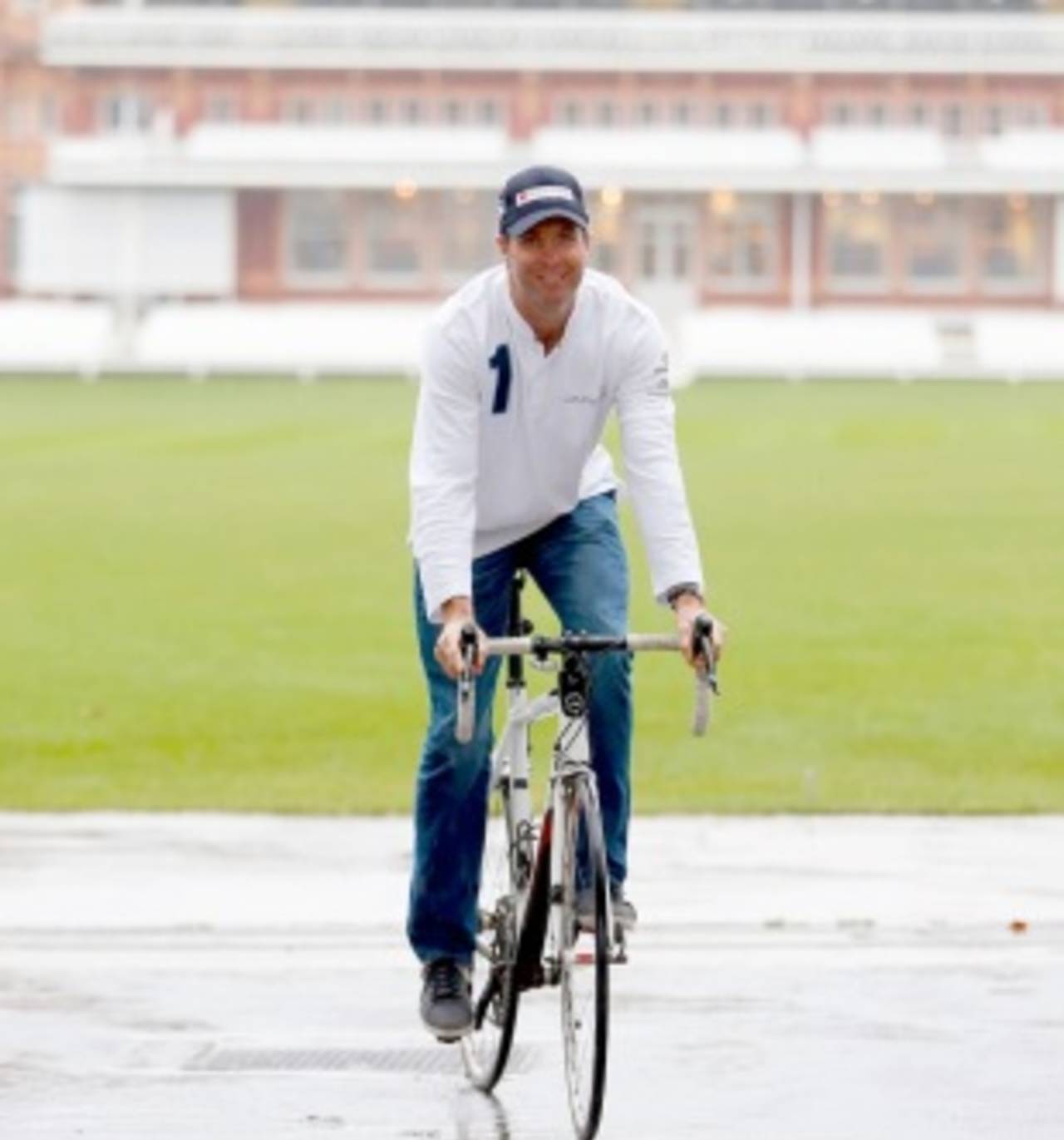Like volcanoes, earthquakes, bird-eating spiders, smallpox, and reality television, cricket's famous DRS was created by a benevolent, omnipotent intelligence. It was given unto us so that we might be free of our grubby human errors, free to enjoy our cricket decision-making in a spirit of perfect rationality.
Well, Dean Jones to that. We didn't get where we are today without being both stubborn and stupid, and it will take more than three capital letters and an infra-red camera to persuade us to ditch our cherished human errors. As Captain Kirk would no doubt have observed: making dumb, inexplicable, facepalm-worthy decisions at crucial junctures is what makes us human, so deal with it, big ears.
The creators of Didn't Really See, having created a system to eliminate human error, made the mistake of allowing human beings to operate it. Naturally, we've not only failed to get rid of the old errors, but we've also discovered some new ones. Step forward Umpire
Dharmasena, whose logic-fail on Thursday was broadcast to a global audience, every member of which spent several open-mouthed seconds staring at the television.
The Umpires Union would like me to point out that the job of the third umpire is not easy. They have to make their decisions in minutes, based on the flimsiest evidence from high-resolution slow-motion footage, futuristic sound-detection devices, and infra-red imaging equipment. Just minutes. It takes some of us that long to persuade our laptops to work, let alone prove the non-existence of a small white blob on a grey background.
And despite the hi-tech trappings, this was nothing more than the old story of "umpire makes mistake", to which the sensible reaction is a shrug, a shake of the head, and a suggestion that he might consider a strongly worded email to his optician. But this is THE ASHES. Mistakes simply will not do when THE ASHES are involved, so reactions to this minor travesty of cricket justice were as exotic and florid as a flower fairy's imaginary garden.
Michael Vaughan was to the fore on Twitter, placing this controversy orange next to the last controversy apple and implying they are two sides of a different fruity coin.
"And people say you should walk… no chance when you get decisions like that."
The Vaughan principle appears to be that a human being is entitled to behave dishonestly if he witnesses another human being of the same profession suffering an injustice, and that, furthermore, if a human being is himself the victim of an injustice, he is excused from any dishonest act he might have previously committed.
This somewhat controversial theory is in opposition to sport's traditional Fairground Doctrine (also known as the Swings and Roundabouts Argument) and the well-established proposition from the field of mathematics, known as the Ultimate Equality of Things Law, which states that, in the end, x = x (where x represents "things").
Inevitably, there were also a few wiseacres chortling that this proved the BCCI was right about the DRS after all. But it's not that simple. Whilst the BCCI have made it clear that they don't like DRS, they have not been particularly consistent over what exactly they don't like about it, instead choosing to maintain a general, non-specific, all-purpose dislike as a sort of a down-payment on a principled objection.
And the spluttering was not limited to cricket folk. The choicest cut from the outrage carcass was served up by one Kevin Rudd, who announced that, in his considered opinion, it was one of the worst cricketing umpiring decisions he'd ever seen.
Sadly, since Umpire Dharmasena doesn't have a Twitter account, we don't know what he thinks about the Australian government's new policy of transporting asylum seekers to Papua New Guinea; described by some as one of the worst prime ministering decisions they've ever seen; a decision that may soon be referred to the legal third umpire.
Andrew Hughes is a writer currently based in England. He tweets here
